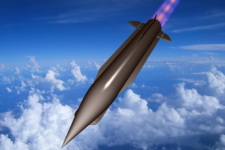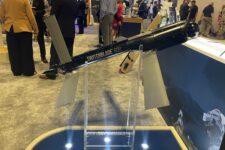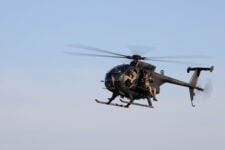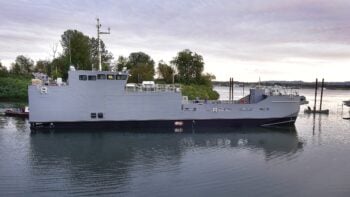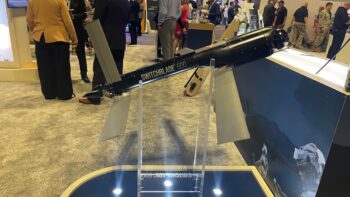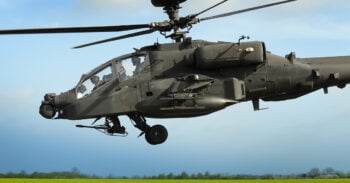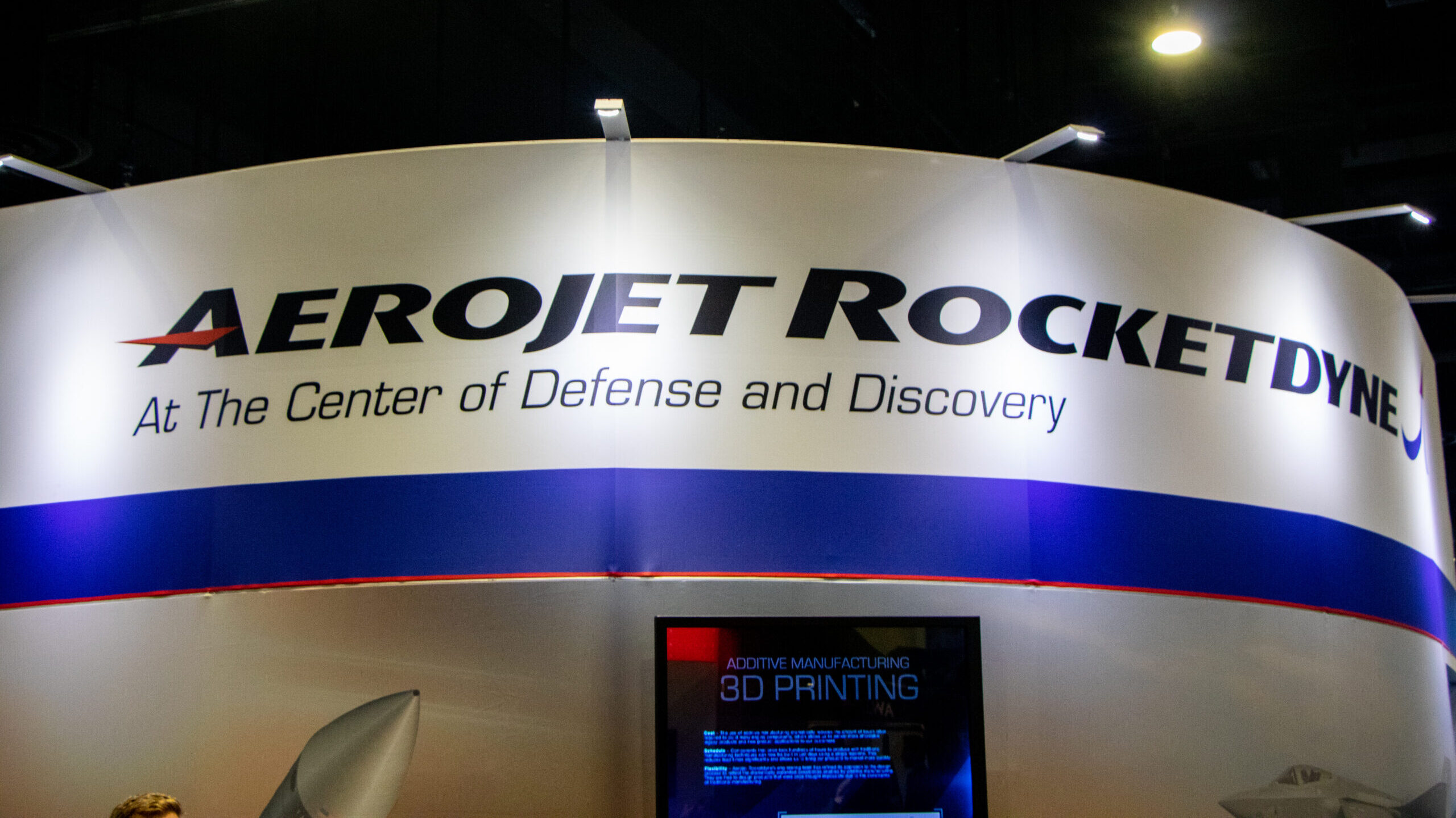
A sign for Aerojet Rocketdyne at the AFA 2022 Air, Space and Cyber Conference. (Justin Katz/Breaking Defense)
WASHINGTON — The Federal Trade Commission has informed L3Harris that regulators do not intend to block the company’s proposed acquisition of Aerojet Rocketdyne, Chief Executive Officer Chris Kubasik said in a letter to investors today [PDF] ahead of the company’s second quarter earnings call.
“We were advised today that the FTC will not block our acquisition of Aerojet Rocketdyne; therefore, we are moving forward to close the transaction on or about July 28,” Kubasik wrote in the letter.
Federal regulators had previously sent a second request for information to both L3Harris and Aerojet over antitrust concerns associated with the deal, as the latter is one of only two major suppliers of solid rocket motors to the Pentagon. The other, Orbital ATK, was previously acquired by Northrop Grumman.
However, the Orbital-Northrop deal happened during the Trump administration, a very different regulatory environment than under the Biden administration. When Lockheed Martin tried to buy Aerojet, regulators sued to block the deal, and in 2022 the aerospace giant abandoned it. The scuttling of that deal set off internal shockwaves at Aerojet, which saw a unusually public spat among its board break out.
A spokesperson for L3Harris referred back to Kubasik’s statement when asked for comment. The Federal Trade Commission declined to comment.
The deal, if finalized, would place L3Harris on a solid footing to achieve Kubasik’s long-stated goal of positioning the company as the sixth major defense prime.
The forthcoming acquisition has also garnered support from an unlikely source: RTX, the parent company of missiles giant Raytheon. Executives from the company, which rely on Aerojet to deliver crucial parts, have been open in recent weeks that while they don’t love strengthening a competitor, they feel Aerojet is in desperate need of new leadership.
“We’ve obviously always been concerned about Aerojet. But I would say some of these things have been magnified by all these external inputs,” Wes Kremer, Raytheon president, told Breaking Defense during last month’s Paris Air Show.
Asked about the challenges RTX sees from its supplier, Kremer said “Aerojet has had issues with both their suppliers and their labor, being able to, you know, have trained employees. Building rocket motors is a pretty specialized kind of business that requires not only the safety aspects of that, but there’s a lot of training, and it’s pretty precise types of things that have to be done. And so, the combination of those things has certainly created problems.
“And then I think, let’s face it, there’s been a lot of distractions from activist investors to proxy fights, all of those things. Aerojet is not only an important supplier to us, they’re an important national asset. And so what we want to see is stabilization of that, and [get] dependable deliveries,” he added.
The Pentagon is keenly interested in spinning up greater production of solid rocket motors that propel critical weapons like the Stinger missile, which has seen extensive use in Ukraine. In April, the Pentagon awarded Aerojet nearly $216 million to expand the company’s facilities in Arkansas, Alabama and Virginia.
TAI exec claims 20 Turkish KAAN fighters to be delivered in 2028
Temel Kotil, TAI’s general manager, claimed that the domestically-produced Turkish jet will outperform the F-35 Joint Strike Fighter.


